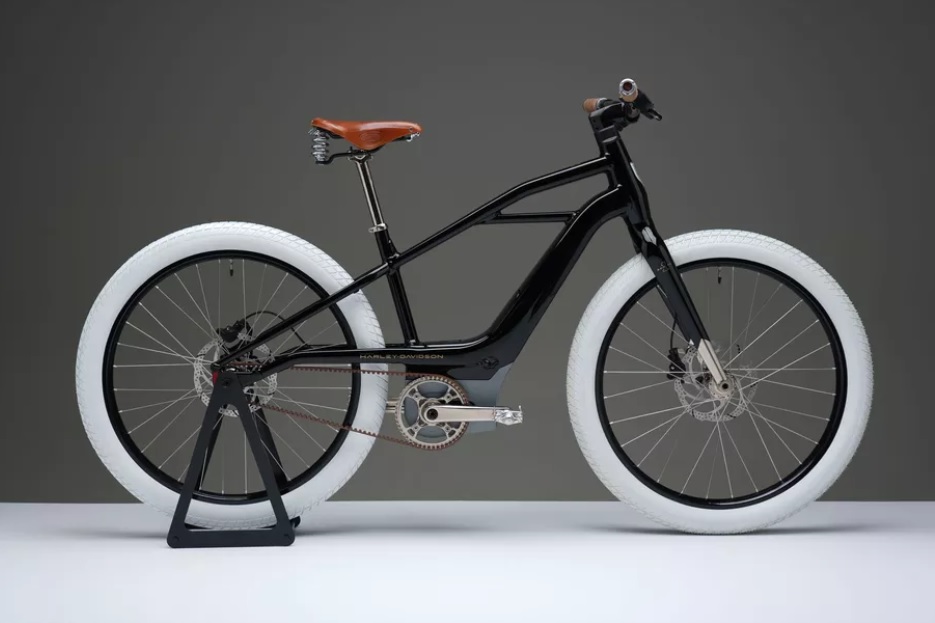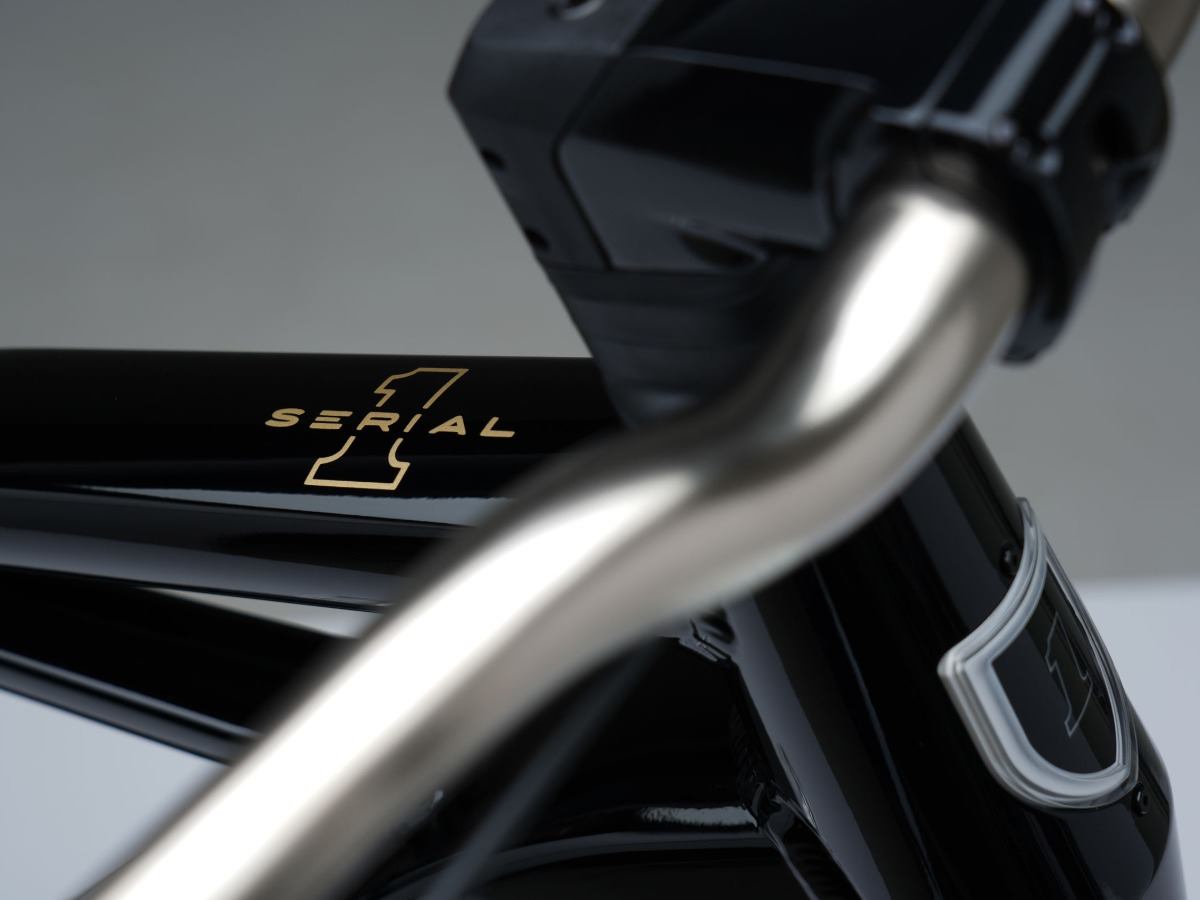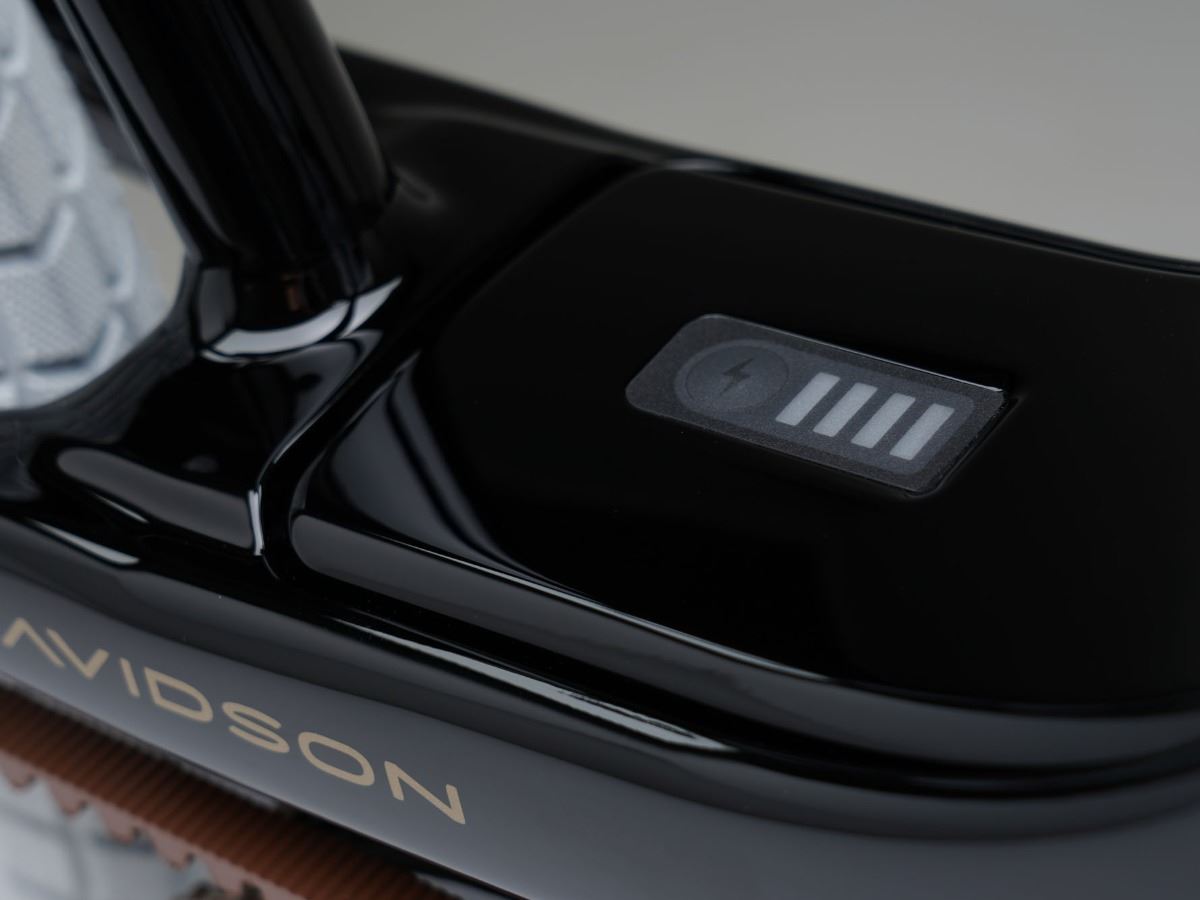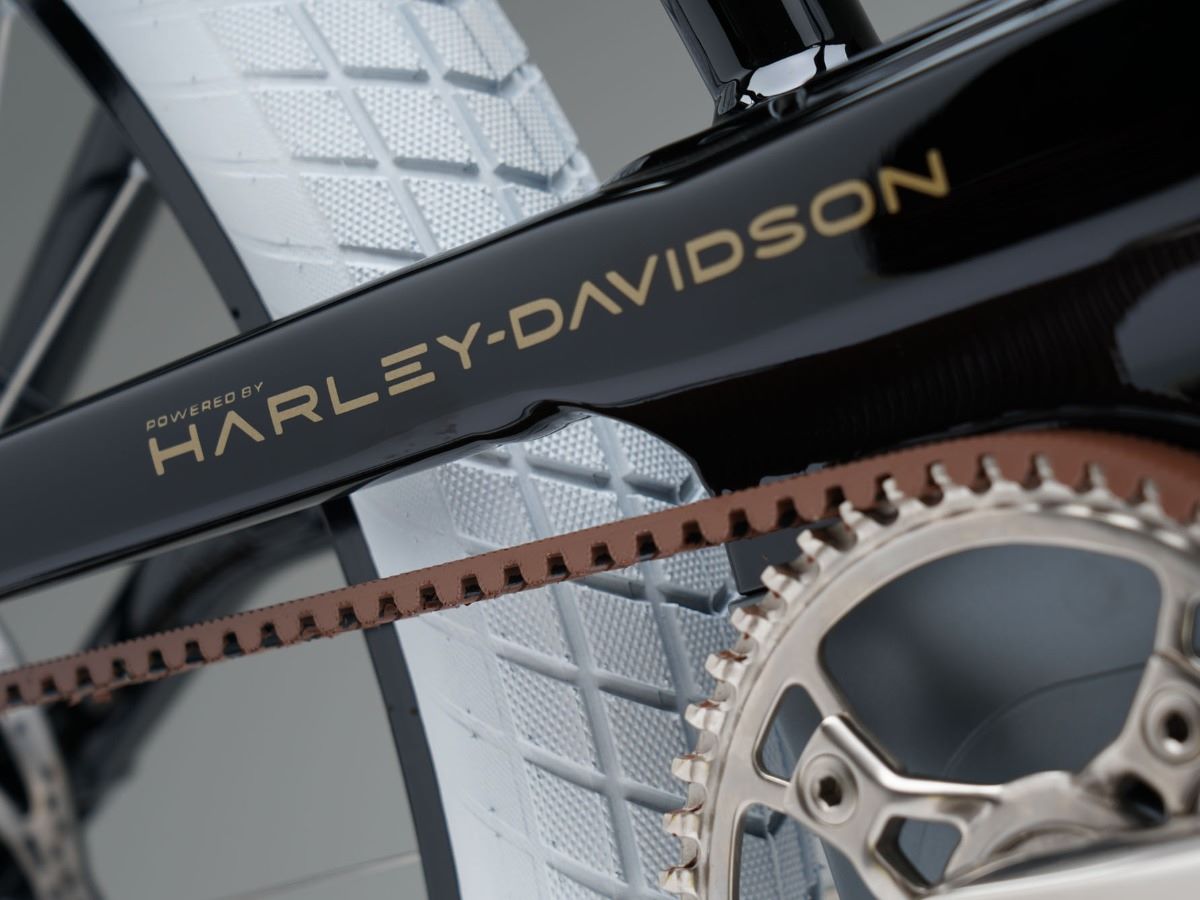Harley-Davidson signaled its intention to electrify its range when it introduced the Livewire, its first battery-powered motorcycle. Additional electric models are in the pipeline, and some of them will be at least partially powered by your legs. It formed a subbrand named Serial 1 to reach new buyers by entering the electric bicycle segment.
Serial 1 is named after Serial Number One, which is the oldest known Harley-Davidson motorcycle. It was built in 1903. 117 years later, the brand’s first e-bike will borrow a handful of styling cues from its distant relative, including white tires, a black frame with gold lettering, and a brown seat propped up by a pair of polished springs.
It looks like engineers integrated the battery pack into the frame and stuffed the motor between the pedals, but technical specifications haven’t been announced yet. Images released by the brand show disc brakes on both wheels, and, surprisingly, a belt instead of a chain. It spins a single fixed gear. Full details about the model will be released in November 2020, and we assume some of Serial 1’s later models will offer riders more gears for increased versatility.
Serial 1 aims to start delivering its e-bikes in the spring of 2021, though we don’t know how they will be distributed yet, or which markets they’ll be available in. America is presumably near the top of the company’s list. Similarly, pricing information hasn’t been announced, but Serial 1 pointed out it will position its bicycles on the premium end of the scale, a term which all but confirms they won’t be cheap. We expect pricing will start in the four-digit range.
Harley-Davidson has been associated with leather jackets and copious amounts of chrome for decades, but riding into the decidedly humbler e-bike segment is wiser than it might seem. It pointed out the sector was worth over $15 billion in 2019, and analysts predict it will grow by 6% annually between 2020 and 2025. Meanwhile, the motorcycle market has developed a misfire that no one seems to know how to fix. Harley-Davidson’s retail sales in the United States haven’t grown in six years, according to Autoblog, and they fell by 10% in the third quarter of 2019.
Editors' Recommendations
- I had written off bicycles, until e-bikes unlocked an entire world for me
- Serial 1 shows why you’d spend $5,000 on an e-bike — and not feel shortchanged
- Blix drops e-bike prices in shift to selling exclusively online
- Electric Citi Bikes is returning to New York City with a price shake-up
- Amazon discounts Elby electric bicycle by $1,000 ahead of Black Friday








